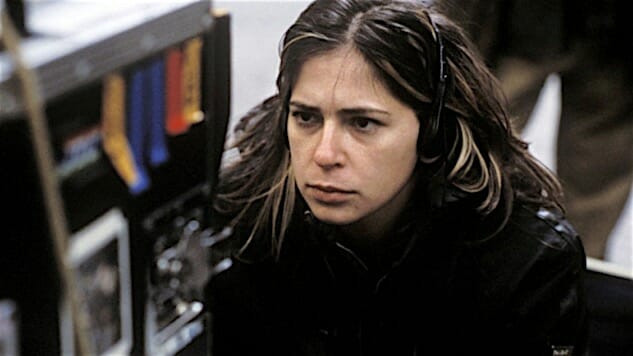Lexi Alexander Talks Directing Supergirl, and the Unspoken Truths about Women in Hollywood

Sometimes, when everyone is talking about a particular issue, it takes a few key voices to point out that the conversation itself is not enough—that it is, in fact, a symptom or a reflection of the very problem it seeks to resolve. Talking about women directors and how we desperately need more of them can be as useless as talking about how desperately we need more black actors to get Oscar-worthy roles. Discourse, as Foucault taught us long ago, is far more complicated than buzz, or, in this case, the repetition of the word “diversity.” And Lexi Alexander is one of few women directors making a similar argument. Tonight, Alexander’s highly-anticipated episode of Supergirl (“Truth, Justice and the American Way”) airs on CBS, and Paste caught up with the Palestinian and German filmmaker to talk about her work on the show, choreographing fight scenes for women and the truth about the long-term effects of sexism in Hollywood—particularly among women.
Paste Magazine: A couple of years ago I got to interview actor and stunt double Zoë Bell and I was just so fascinated with the kind of work people do when they are so in tuned with their bodies and their own physicality. How does your life as a fighter inform your style or your experiences as a director?
Lexi Alexander: I love Zoë! She’s my friend. And this is an excellent and interesting question. First of all, this episode of Supergirl happens to be my first time directing actions scenes with a female lead. It hadn’t even occurred to me that I had created all of these fight scenes—choreographed them, or directed them, or both—and they were all for dudes! And a woman’s fight is often really badly choreographed. Like, she’ll punch a guy who’s 220 pounds and her wrist will be bent down, and I’ll think, “Well, if she’d really punched him like that, she would have broken her hand.” So there’s a lot of laziness in some of this choreography. Perhaps the people around don’t really care about how the woman looks, or maybe in their minds, this is how a woman looks in a fight. I get frustrated.
I often think about it, and I probably wouldn’t be directing if I wasn’t a fighter. At some point I was on an all-male team in Europe, and I think it taught me to deal with the boys club. I’m not someone who throws the towel in, although I think there are many times when I could have and should have thrown the towel in, and nobody would have thought any worse of me.
Paste: I was re-reading your blog about fake activism in Hollywood, and I so loved your metaphor of the “wildcard” fighting system. In the time since you wrote that, do you find that people in the industry are being more honest about the realities for women directors?
Alexander: People are trying a little bit more—the smart ones. You have to be an idiot at this point to think that there isn’t a problem. The EEOC [Equal Employment Opportunity Commission] has begun an official government investigation. So people know it’s there. But my fear is that we’re fixing it in a very shallow manner. We’re not fixing the fires that manifest. We have to go much deeper into why this is even happening for us to really heal and fix this, and not just put a band-aid on it.
Paste: Your Supergirl episode is coming up. Can you talk a little about working on the show? How was this different from your past TV directing experiences?
Alexander: What’s really amazing is that the showrunner who really got me my start in TV is Andrew Kreisberg. He brought me on to Arrow and he tracked me down because he was a fan of Punisher. And [co-showrunner] Greg Berlanti kind of gave orders that they would not be the kind of company that has no women directors.
-

-

-

-

-

-

-

-

-

-

-

-

-

-

-

-

-

-

-

-

-

-

-

-

-

-

-

-

-

-

-

-

-

-

-

-

-

-

-

-








































